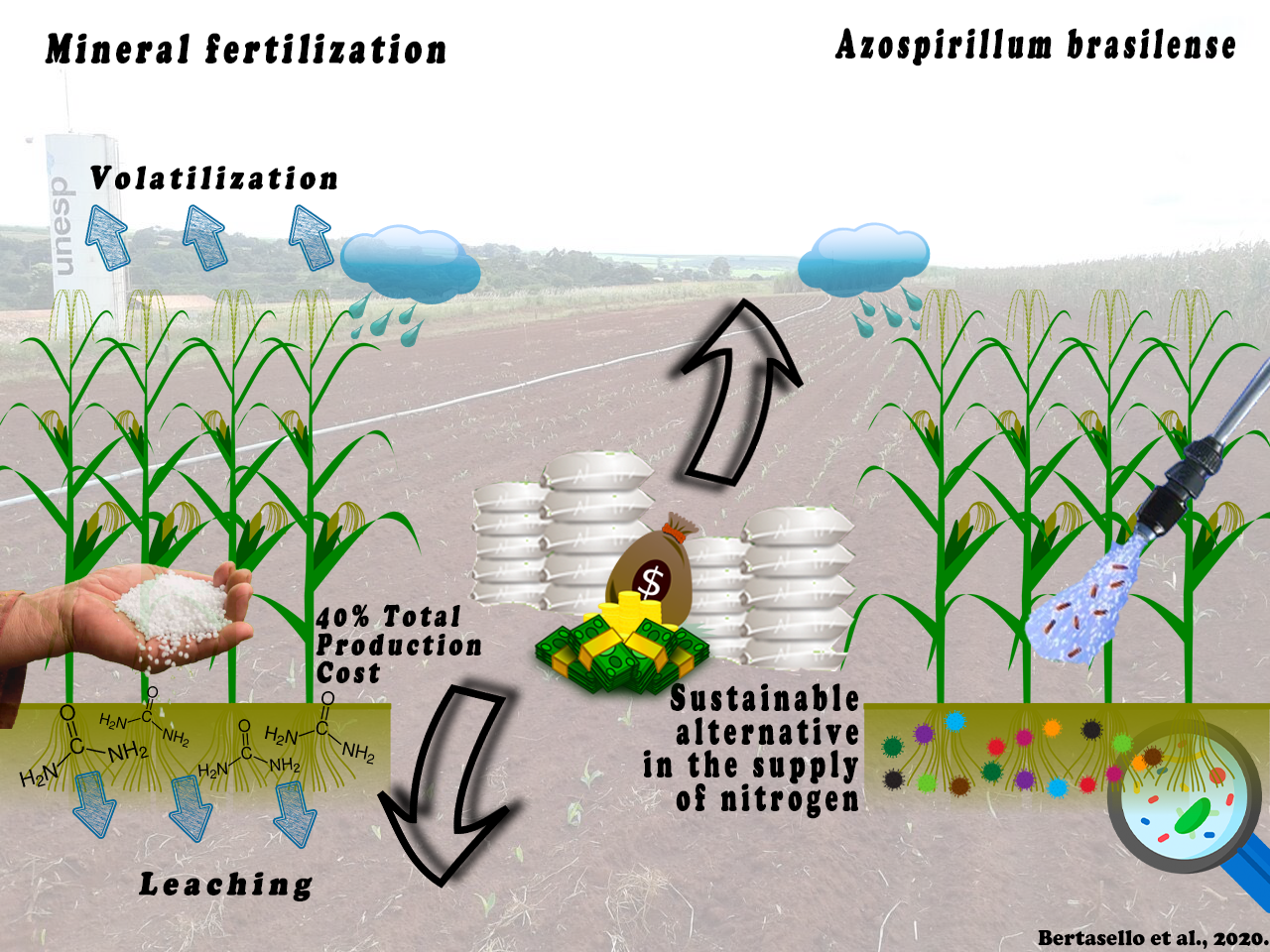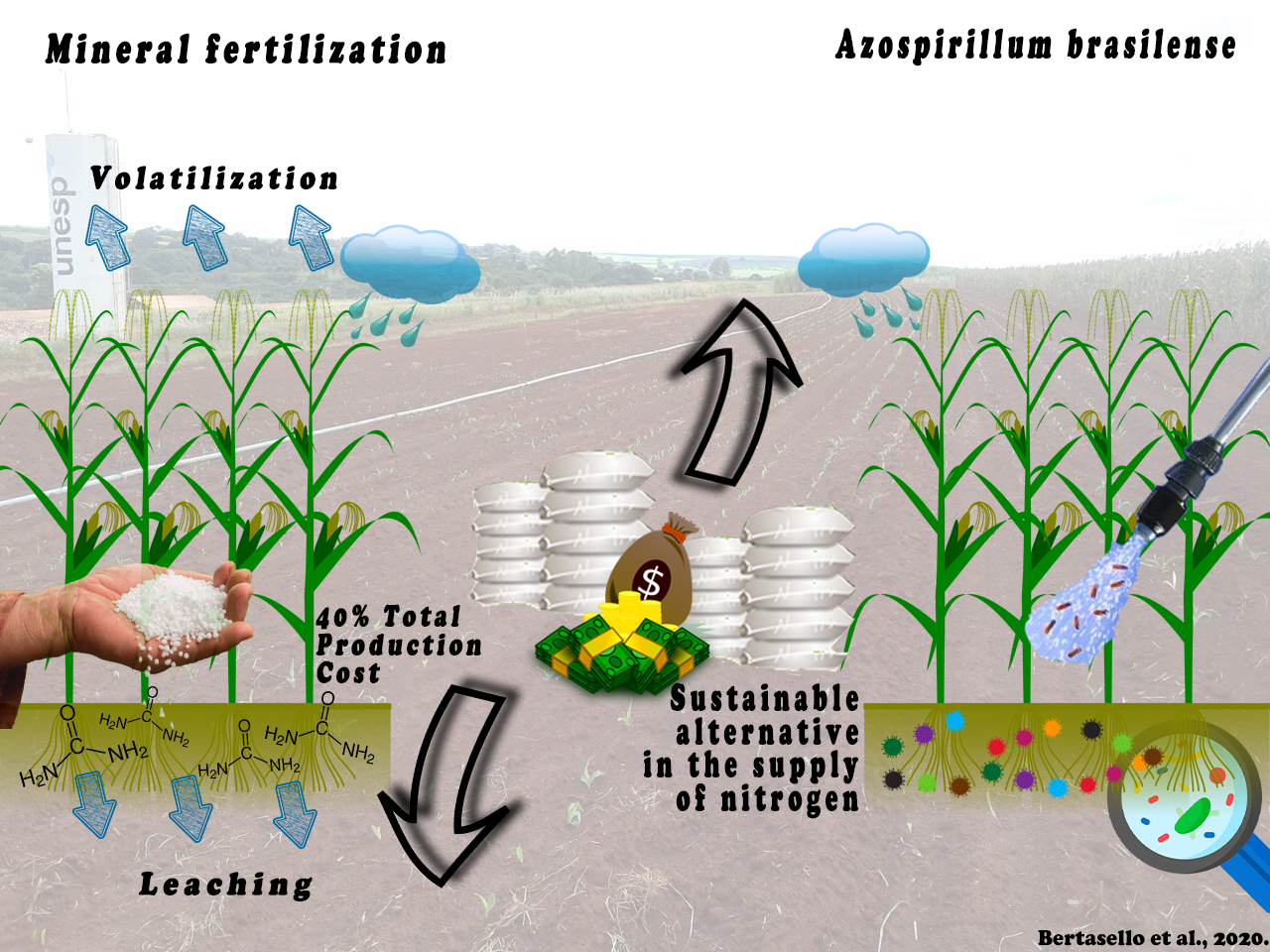Agronomic performance of maize (Zea mays L.) genotypes under Azospirillum brasilense application and mineral fertilization
Agronomic performance of maize genotypes
DOI:
https://doi.org/10.48162/rev.39.007Keywords:
diazotrophic bacteria, nitrogen, grain yield, Zea mays LAbstract

Maize has a high nitrogen demand; as a result, more sustainable alternatives are needed to reduce demand for mineral fertilizers. This study aimed to evaluate and characterize the agronomic performance of maize genotypes submitted to topdressing nitrogen fertilization and inoculation with Azospirillum brasilense. An experiment was conducted in the second season of 2017, in Jaboticabal-SP (Brazil), using 48 maize genotypes in a randomized block design. Treatments consisted of: 1) application of 140 kg ha-1 nitrogen, using urea as mineral fertilizer; 2) A. brasilense inoculation via soil, at a rate of 600 mL ha-1, as biological fertilization. Grain yield and agronomic traits were evaluated. The data were subjected to analysis of variance (F-Test), means were compared by Scott-Knott test at 5% probability, and multivariate statistical analysis was performed by principal component analysis. A. brasilense inoculation via soil has a significant effect on female flowering, on the interaction between genotype versus N supply for Fusarium spp., and increases the maize grain yield; however, the responses of agronomic attributes vary with genotype.
Highlights
- The inoculation with Azospirillum brasilense via soil increases maize grain yield, becoming viable and more sustainable alternative in the supply of nitrogen.
- The choice of the genotypes is an essential fator for the sucessful use of Azospirillum brasilense application or mineral fertilization, because the responses of agronomic attributes vary with the genotype.
- The most contrasting genotypes can be recombined in new stages of crossbreeding and selection, aiming at obtaining genotypes with greater yield potential in the use of Azospirillum brasilense inoculation.
- Further studies are needed to better understand this technology under conditions with different genotypes, soils and production systems.

Downloads
Published
Issue
Section
License
Copyright (c) 2021 Revista de la Facultad de Ciencias Agrarias UNCuyo

This work is licensed under a Creative Commons Attribution-NonCommercial-ShareAlike 3.0 Unported License.
Aquellos autores/as que tengan publicaciones con esta revista, aceptan las Políticas Editoriales.



